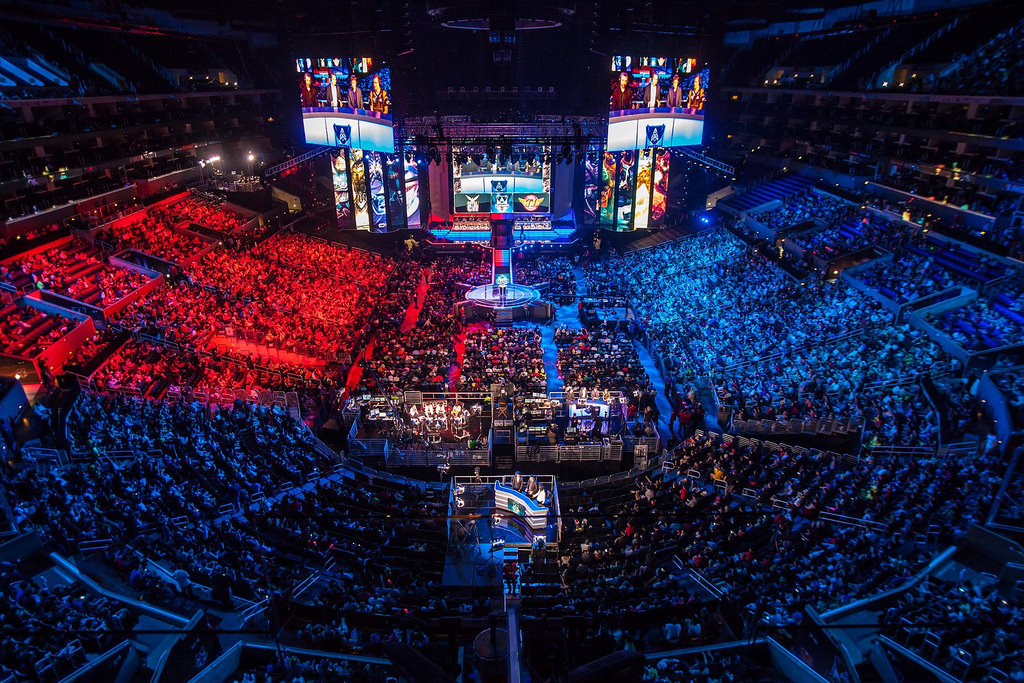Mental Health in Sports: Breaking the Stigma and Supporting Athlete Well-Being

In recent years, mental health in sports has gained the attention it deserves, with more athletes, coaches, and organizations recognizing the importance of mental well-being in athletic performance and overall quality of life. For decades, the intense pressure to win and the expectation to remain mentally “tough” overshadowed athletes’ mental health struggles, leading many to suffer in silence. Now, as mental health awareness grows, athletes and teams are beginning to address the issue head-on, providing resources, support, and creating a healthier culture within sports. This article will delve into the stigma surrounding mental health in sports, the unique pressures athletes face, the benefits of mental health support, and the growing movement to foster mental wellness in the sports community.
1. The Stigma Around Mental Health in Sports
In sports, where physical strength, endurance, and resilience are celebrated, mental health struggles have often been perceived as a sign of weakness. Athletes are taught to “power through” obstacles, which can discourage them from seeking help when facing mental health issues. This mindset has contributed to a pervasive stigma surrounding mental health in sports, where many athletes feel they cannot openly discuss their struggles without risking judgment, ridicule, or loss of opportunities.
a. The “Toughness” Culture
The culture of “mental toughness” in sports, while valuable for handling performance pressure, can be detrimental when it prevents athletes from addressing genuine mental health issues. This culture often perpetuates the belief that mental health struggles are simply obstacles to overcome with more effort, rather than real challenges requiring professional support. For many athletes, admitting to a mental health issue may feel like betraying the values of resilience and grit that sports instill.
b. The Risk of Burnout and Isolation
When athletes hide their mental health struggles, they risk burnout and a sense of isolation. This is particularly true for those in high-profile or professional roles, where the stakes are high, and there may be additional fear of letting down fans, teammates, or sponsors. When mental health is stigmatized, athletes are less likely to seek support, which can lead to chronic stress, anxiety, depression, and even impact their performance.
2. Unique Mental Health Challenges for Athletes
Athletes face unique pressures, from intense physical demands to the constant scrutiny of public opinion, that can take a significant toll on their mental well-being. Understanding these challenges is key to providing effective support and promoting mental health in sports.
a. Pressure to Perform
Athletes are constantly evaluated on their performance, often leading them to prioritize results over their well-being. The pressure to win, avoid mistakes, and meet high expectations from coaches, fans, and themselves can be overwhelming. For many athletes, this constant pressure contributes to anxiety and a fear of failure, which, if unaddressed, can lead to serious mental health issues.
b. Injuries and Recovery
Physical injuries are an inevitable part of sports, but they can also take a serious toll on an athlete’s mental health. When sidelined by an injury, athletes may experience feelings of frustration, worthlessness, and isolation. The physical pain and uncertainty of recovery can lead to depressive symptoms, while the pressure to return to peak form adds further stress.
c. Transitioning Out of Sports
Many athletes experience difficulty when transitioning out of competitive sports, whether due to injury, age, or a change in career focus. The end of an athletic career can lead to an identity crisis, as athletes who once defined themselves by their sport may struggle to find a new purpose. This transitional period can be emotionally challenging and increase vulnerability to depression, anxiety, and other mental health issues.
3. The Benefits of Mental Health Support in Sports
When mental health support becomes a priority, athletes experience numerous benefits, including improved performance, increased resilience, and a greater sense of well-being. Integrating mental health resources into sports can help athletes navigate challenges and maintain a healthy balance between their professional and personal lives.
a. Enhanced Performance and Focus
Supporting athletes’ mental health can positively impact their performance. Mental health resources, such as sports psychology and counseling, help athletes develop mental skills, including focus, stress management, and positive thinking. When athletes have the tools to manage their mental health, they can perform more consistently and handle pressure more effectively.
b. Greater Emotional Resilience
Mental health support helps athletes build emotional resilience, enabling them to bounce back from setbacks, injuries, or poor performances. When athletes have the skills to manage stress and frustration, they’re less likely to suffer from burnout or be overwhelmed by negative experiences. Emotional resilience not only benefits athletes in competition but also fosters well-rounded development and mental well-being.
c. Positive Team Culture
When sports organizations prioritize mental health, it creates a positive, supportive team culture. Athletes are more likely to feel comfortable discussing their mental health and supporting each other when it’s normalized within the team. Coaches, trainers, and teammates who encourage openness and mental wellness create a healthier environment that contributes to both individual and team success.
4. Initiatives to Support Athlete Mental Health
Recognizing the importance of mental health, many sports organizations are implementing initiatives to support athletes. These programs aim to break down stigma, offer resources, and create environments that prioritize mental well-being.
a. Sports Psychology and Counseling Services
Sports psychology programs provide athletes with access to mental health professionals who specialize in performance-related challenges. These services help athletes manage anxiety, maintain focus, and address emotional challenges related to competition. Sports psychologists often work with athletes on visualization techniques, goal-setting, and coping strategies to enhance their mental game.
b. Mental Health Training for Coaches
Coaches play a critical role in an athlete’s life, and training them in mental health awareness can make a significant difference. Many organizations are now providing coaches with education on mental health, helping them recognize signs of distress and foster open communication. By promoting a supportive, understanding approach, coaches can encourage athletes to seek help when needed.
c. Peer Support Programs
Peer support programs allow athletes to connect with others who have faced similar challenges, offering a safe space for discussing mental health. These programs can be instrumental in breaking down stigma, as athletes feel less isolated and more empowered to address their struggles. Many peer support programs also involve retired athletes who can offer guidance on career transitions and managing post-competition life.
5. The Role of Technology in Athlete Mental Health
Technology is playing an increasingly significant role in supporting athlete mental health, offering new tools for tracking well-being, managing stress, and connecting with mental health resources. These advancements make mental health support more accessible, allowing athletes to monitor their wellness and seek help in real time.
a. Mental Health Apps and Platforms
Mobile apps and digital platforms offer athletes a variety of mental health resources, from guided meditation to mood tracking and therapy sessions. Apps like Calm, Headspace, and BetterHelp provide athletes with convenient, on-demand support, allowing them to manage stress and maintain mental well-being. Many organizations are also developing proprietary platforms where athletes can access personalized resources and connect with mental health professionals.
b. Wearable Technology for Monitoring Stress
Wearable devices, such as fitness trackers and smartwatches, can monitor athletes’ physical and mental states by tracking metrics like heart rate variability and sleep patterns. These insights help athletes identify signs of stress or fatigue and make informed decisions about their training and recovery routines. Wearables can also alert coaches and trainers to potential issues, allowing for early intervention.
c. Virtual Support Networks
Social media and online support networks offer athletes a platform to discuss mental health openly and connect with others facing similar challenges. Many athletes have found empowerment in sharing their experiences on social media, which has helped reduce stigma and raise awareness. Virtual networks also provide athletes with a sense of community, which can be particularly valuable for those in remote training environments or individual sports.
6. High-Profile Athletes Advocating for Mental Health
The movement for mental health in sports has gained momentum thanks to high-profile athletes who have shared their stories. By speaking openly about their struggles, these athletes are challenging stigma and encouraging others to prioritize mental well-being.
a. Simone Biles and Mental Health Awareness
Olympic gymnast Simone Biles brought mental health to the forefront of the sports world when she chose to withdraw from several events during the 2020 Tokyo Olympics. Biles cited mental health concerns as the reason, sparking global conversations about the pressures athletes face. Her decision underscored the importance of mental health and demonstrated that taking care of oneself is as crucial as achieving physical goals.
b. Kevin Love’s Impact on Anxiety and Depression Awareness
NBA player Kevin Love has been a vocal advocate for mental health, sharing his experiences with anxiety and depression. By speaking out, Love has inspired other athletes to confront their own mental health challenges and seek help. His advocacy has played a vital role in raising awareness and creating a more open environment in sports.
7. Looking Forward: A Healthier Sports Culture
As mental health awareness grows, the sports community is making strides toward a healthier culture that prioritizes both physical and mental well-being. Embracing mental health as a fundamental aspect of sports has the potential to benefit athletes, teams, and the broader community.
a. Developing Mental Health Education Programs
Many sports organizations are beginning to incorporate mental health education into their programs, ensuring that athletes understand the importance of mental wellness and have the resources they need. From youth leagues to professional teams, mental health education can help athletes build healthy habits and resilience.
b. Creating a Supportive Environment for Future Generations
By fostering a culture that values mental health, the sports community is setting a positive example for future generations. Young athletes who grow up in an environment where mental health is prioritized are more likely to seek help and support one another. This shift can create a legacy of well-rounded athletes who are prepared to face the pressures of competition with a healthy mindset.
Conclusion: Embracing Mental Health in Sports
The movement to support mental health in sports is reshaping the industry, making it more inclusive and compassionate. Athletes are no longer expected to bear their struggles alone; instead, they are encouraged to address their mental health with the same dedication they apply to physical training. As the stigma surrounding mental health continues to fade, athletes are empowered to take care of their well-being, paving the way for a healthier, more sustainable future in sports.





